Law students learned about the Czech experience of statehood and lessons for Ukraine
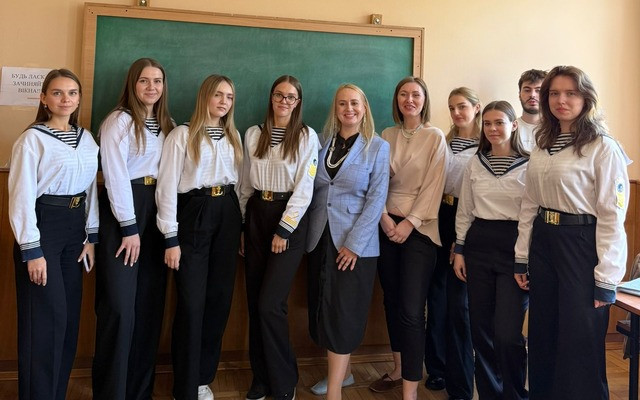
The Czech Republic has proven that an effective constitutional system is possible even after the loss of statehood and prolonged periods of external dependence. For Ukraine, this experience is an important benchmark in strengthening the rule of law and developing democratic institutions.
Olena Maksymenko, representative of the Ukrainian National Bar Association in Prague, spoke about the constitutional system and legal system of the Czech Republic during a lecture for law students at the National University «Odessa Maritime Academy».
Today, more than 500,000 Ukrainian citizens live in the Czech Republic, 380,000 of whom are under temporary protection. For a country with an area of 78,800 square kilometers and a population of 10.6 million, this presence is significant. It creates conditions for mutual influence and exchange of experience.
O. Maksymenko recalled that the Constitution of the Czech Republic was adopted on December 16, 1992. A distinctive feature is the existence of the Declaration of Fundamental Rights and Freedoms as a separate document with constitutional force. Amendments to the Constitution are adopted by constitutional laws with a qualified majority (3/5 of deputies and 3/5 of senators). This procedure also applies to the ratification of international treaties.
Power is divided into legislative, executive, and judicial branches. Legislative power is vested in a bicameral Parliament, which consists of the Chamber of Deputies, with 200 members elected for four years under a proportional system, and the Senate, with 81 members elected for six years under a majority system, with one-third of the members rotating every two years.
Executive power is vested in the President and the Government. The President is elected by direct vote for a term of five years (no more than two terms). He appoints the Prime Minister, judges of the Constitutional and Supreme Courts, has the right of amnesty, and performs the functions of supreme commander-in-chief.
The Government, headed by the Prime Minister, is the highest executive authority and is accountable to the Chamber of Deputies.
The Constitutional Court consists of 15 judges appointed by the President for a term of 10 years. The court considers constitutional complaints, reviews laws for constitutionality, decides on the dissolution of parties, and ensures the enforcement of international court decisions.
The sources of law are normative legal acts, international treaties, which, after ratification, take precedence over national legislation, decisions of the Constitutional Court, and EU law.
Case law and doctrine play a supporting rather than a normative role, which emphasizes the continental tradition.
The country's Constitution separately identifies institutions for the control and protection of rights, which include the Supreme Audit Office, which controls the use of public funds. The Czech National Bank, which is responsible for supervising currency stability, and the Ombudsman's Office, which is an independent human rights protection body, have a separate focus on protecting the rights of children.
«The Czech Republic is an example of a state that has repeatedly lost and regained its statehood. From the elimination of the independence of the lands of the Czech Crown within Austria-Hungary to the creation of Czechoslovakia, the collapse of the First Republic, the period of Nazi occupation and Soviet influence, the path to independence was long and difficult, - commented O. Maksymenko on the importance of the lecture topic. - This experience is relevant for our country because it shows how even in the most difficult historical conditions, it is possible to revive effective parliamentary democracy».
The lecturer also reminded the audience that the Czech Republic has given the world many figures who have influenced the course of world history and culture: the modernist writer Franz Kafka, the dissident and president Václav Havel, the Oscar-winning film director Miloš Forman, and the diplomat Madeleine Albright, the first female Secretary of State of the USA.
Popular news
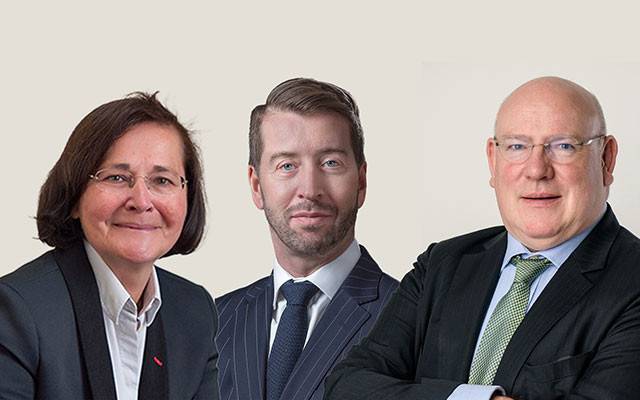
Legislation
UNBA initiatives to implement the Roadmap were supported by international experts
International experts who participated in the inaugural meeting of the Working Group on the implementation of the Roadmap on the rule of law in advocacy and agreed to join it expressed their support for the initiative of the Ukrainian National Bar Association.

Legislation
How will the group responsible for implementing the Roadmap for advocacy operate?
The working group on the implementation of the Roadmap on the rule of law in the area of advocacy will operate at several levels: plenary meetings as a platform for adopting framework decisions, a coordination bureau for compiling documents and calendar control, and thematic subgroups for preparing norms and their justification. International experts will verify the results against European standards and «red lines».
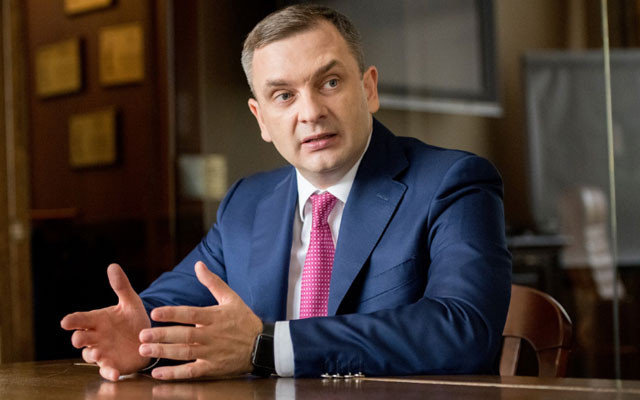
Legislation
Advocacy is a responsible entity, not a critic of reform — V. Gvozdiy
The Roadmap on the Rule of Law is not a basis for restructuring the model of advocacy, but a framework for verifying and improving the already European-oriented system. At the same time, part of the work has already been done, so further progress should be made in the form of coordinated and practical decisions.
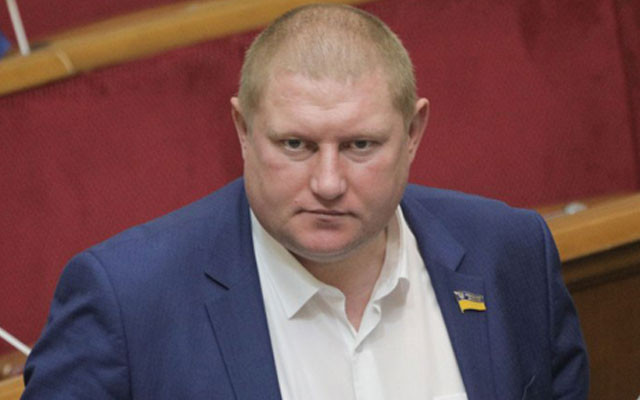
Legislation
Vatras on the implementation of the Roadmap: only advocates should create their own destiny
Work on implementing the Roadmap in relation to advocacy should be based on the participation of the professional community itself, and key tasks should be structured in such a way as to avoid mixing processes that differ in content and procedure.
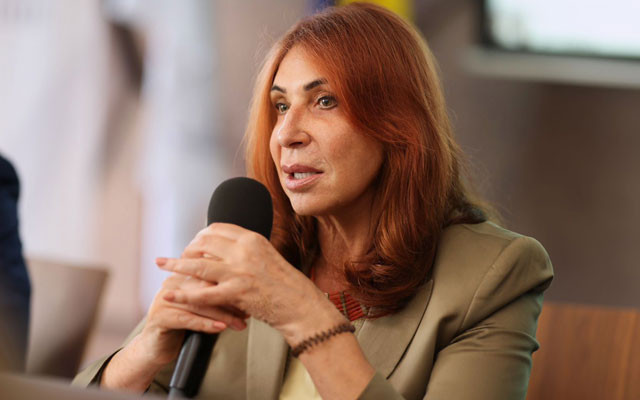
Legislation
Lidiya Izovitova outlined the approach to implementing the Roadmap for advocacy
The general approach to working on the implementation of the Roadmap on the Rule of Law in terms of reforming advocacy should not be based on «slogans», but rather on gathering facts, comparing them with standards, consulting with the professional community, and formulating norms for which participants are prepared to take responsibility.
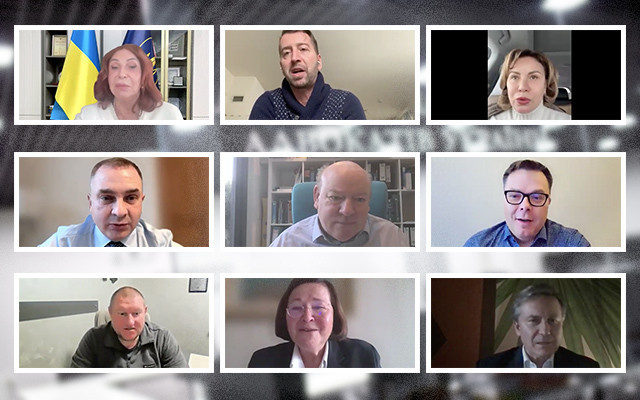
Legislation
Roadmap and advocacy: working group holds first meeting
On January 2, the first organizational meeting of the Working Group on the implementation of the Roadmap on the rule of law in the area of advocacy reform took place. The event was devoted to agreeing on the framework for further work and exchanging the initial positions of the participants.
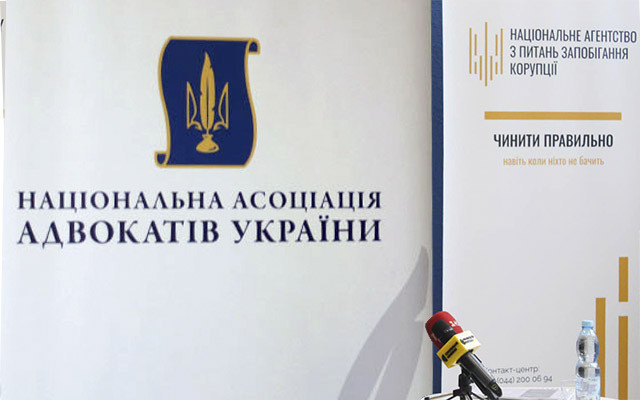
Self-government
BCU: NACP initiatives regarding the Bar are unconstitutional interference
The Bar Council of Ukraine has condemned the initiatives to reform the Bar proposed by the National Agency on Corruption Prevention as direct, gross and systematic interference by the executive branch in the activities of an independent constitutional institution.

Self-government
UNBA program for implementation of the Roadmap on the rule of law published
In order to ensure the implementation of measures set out in the Roadmap on the Rule of Law, the Bar Council of Ukraine approved a program for its implementation in relation to the reform of advocacy.
Publications

Victoria Yakusha, Law and Business The anti-corruption vertical cannot «take care» of the Bar as an institution, - acting head of the HQDCB

Censor.net Protecting advocates – protecting justice: addressing concerns about the new law

Ihor Kolesnykov A BRIEF SUMMARY REGARDING THE APPLICATION OF THE ORDER ON EXTENDED CONFISCATION IN LATVIA REGARDING FINANCIAL ASSETS OF…

Valentyn Gvozdiy WORKING IN A WAR ZONE

Lydia Izovitova Formula of perfection

Sergiy Vylkov Our judicial system is so built that courts do not trust advocates

Iryna Vasylyk Advocacy in the proclamation of Independence of Ukraine

Oleksandr DULSKY When we cross the border of the Supreme Anti-Corruption Court, we get into another department of the National Anti-Corruption…
